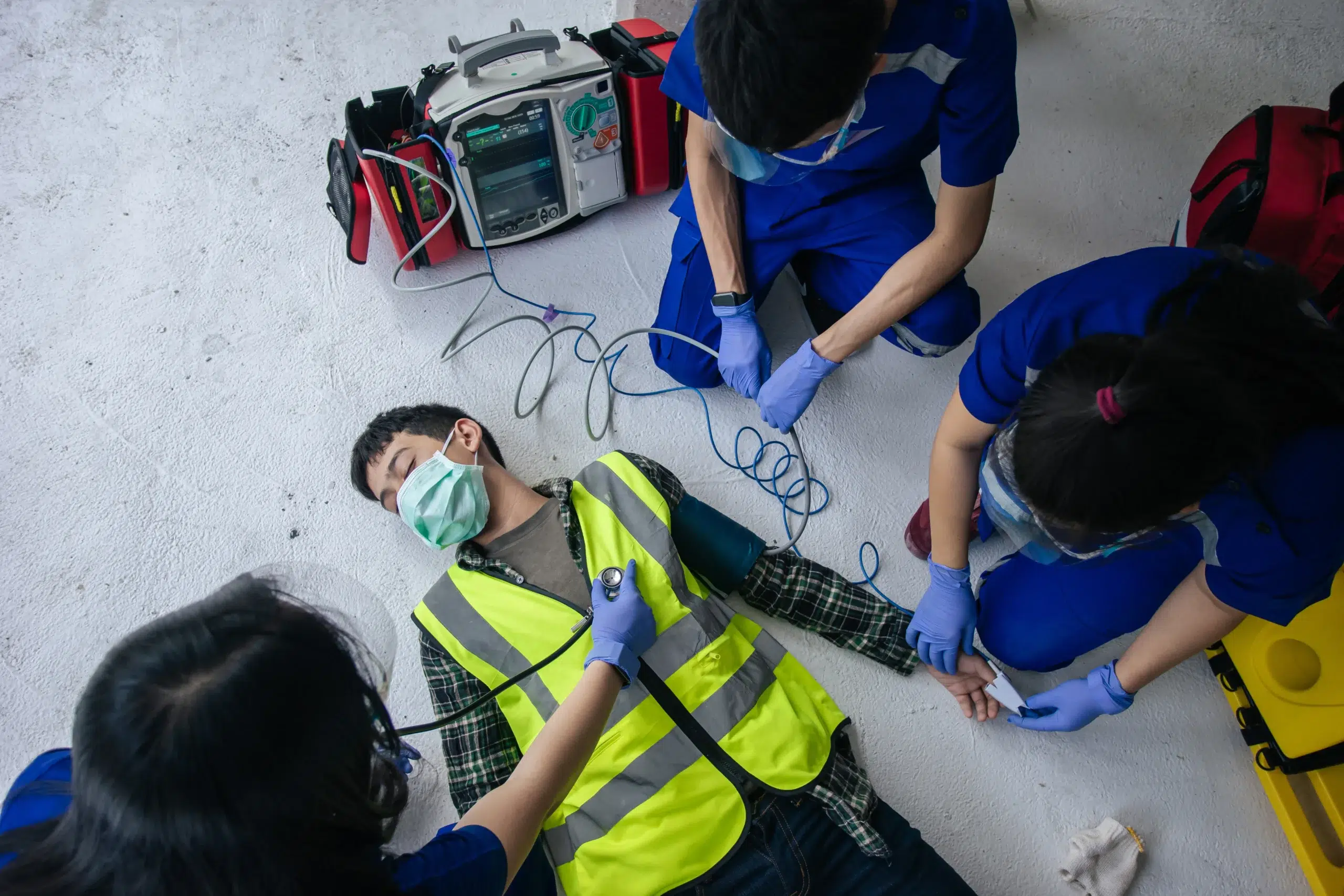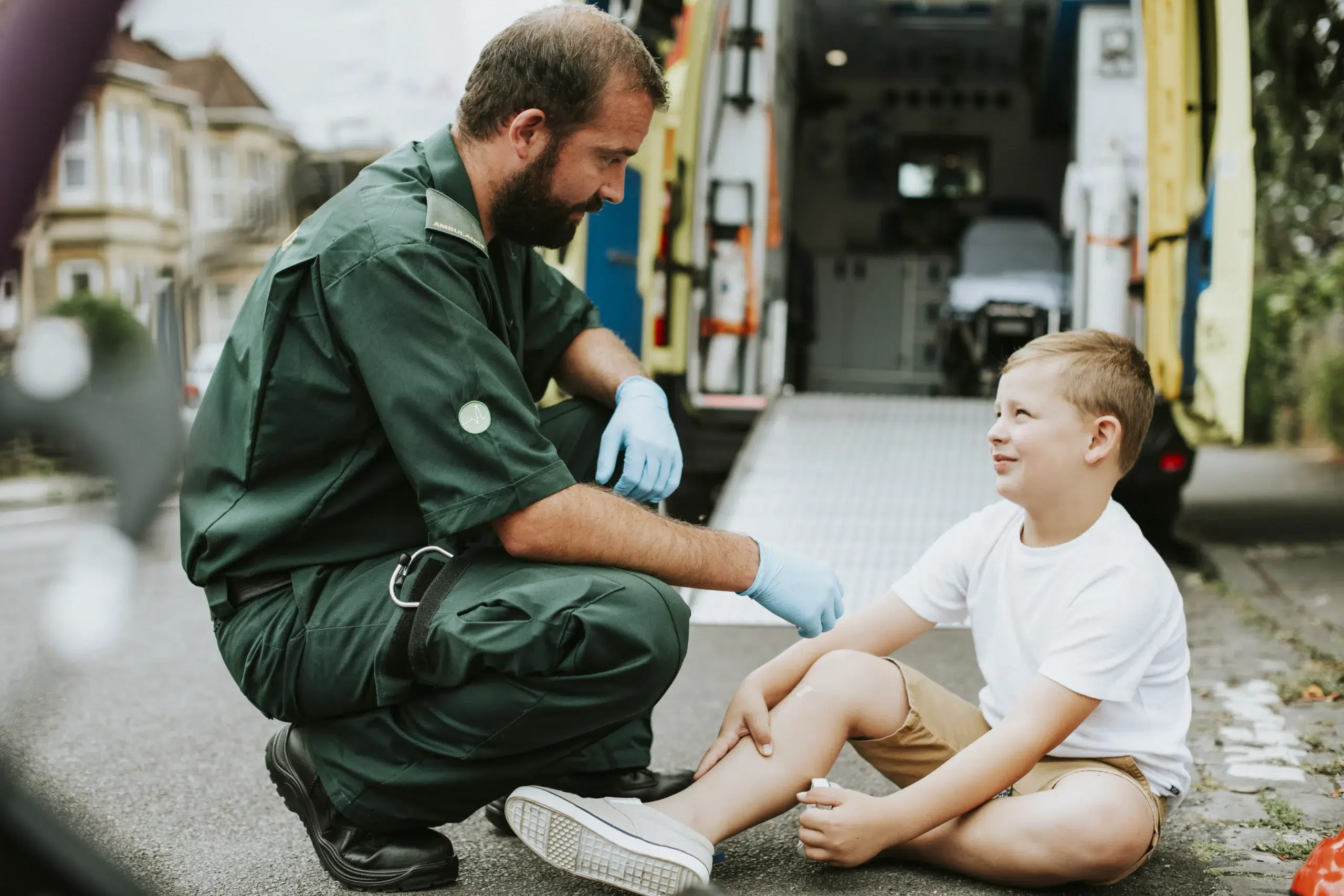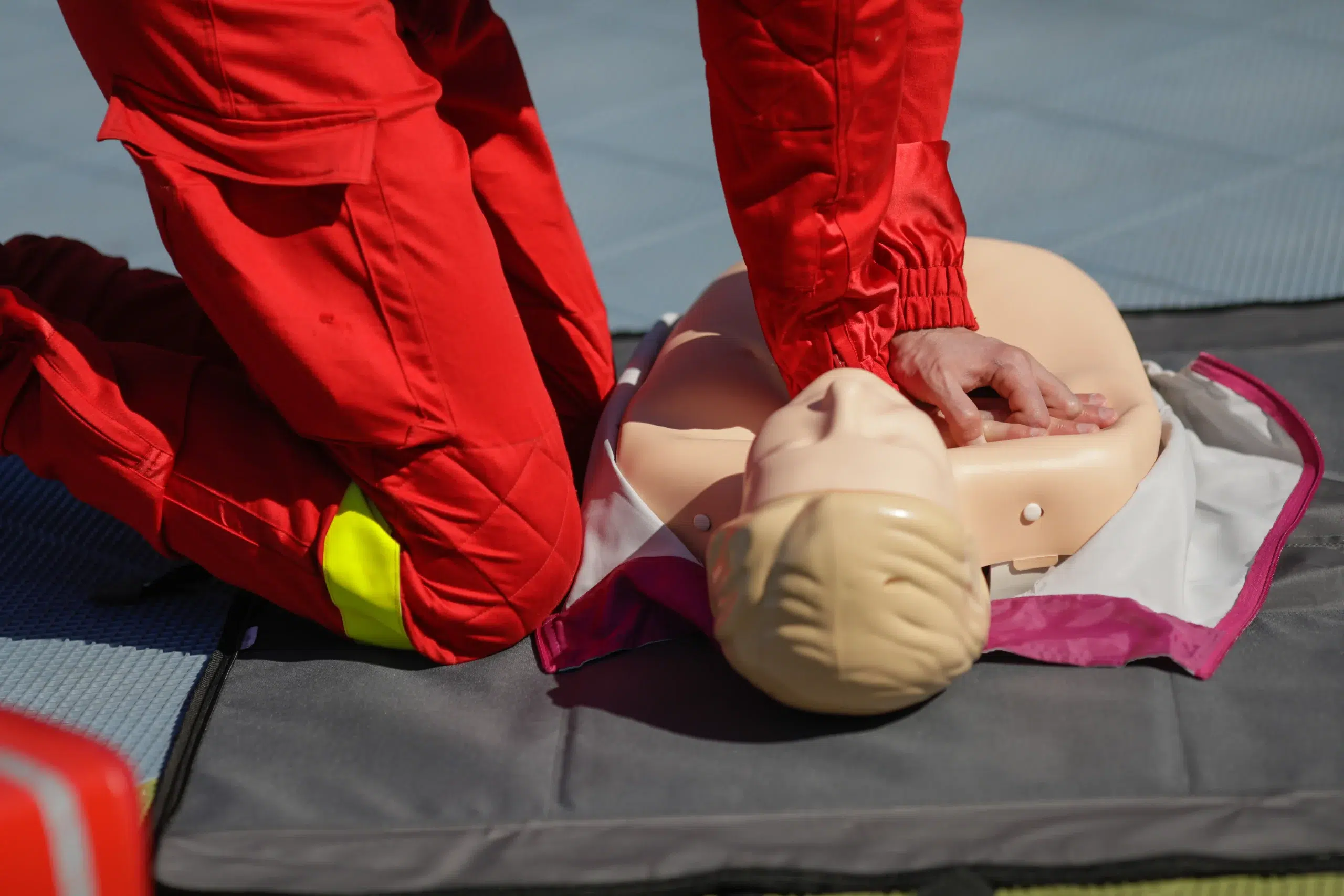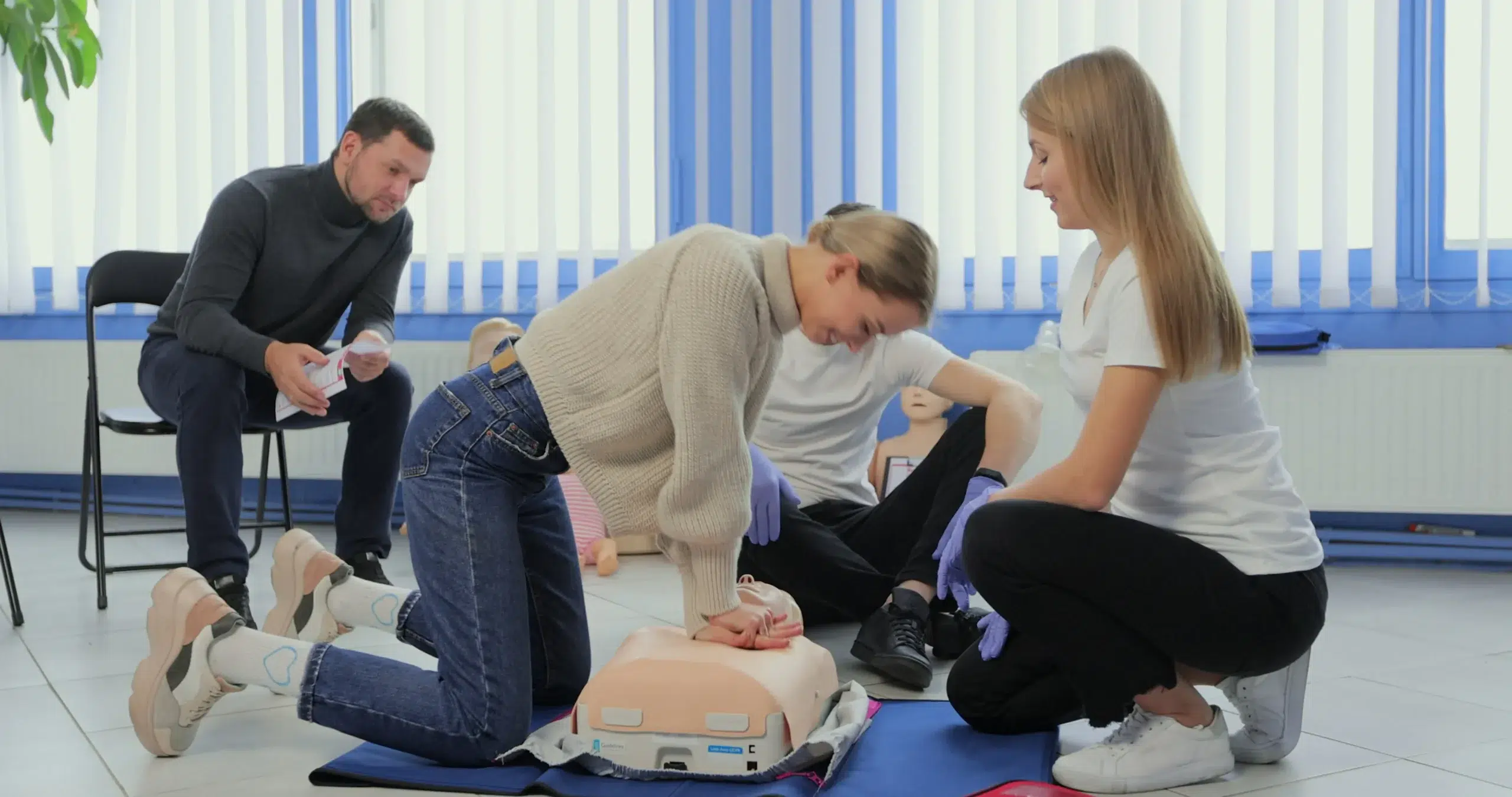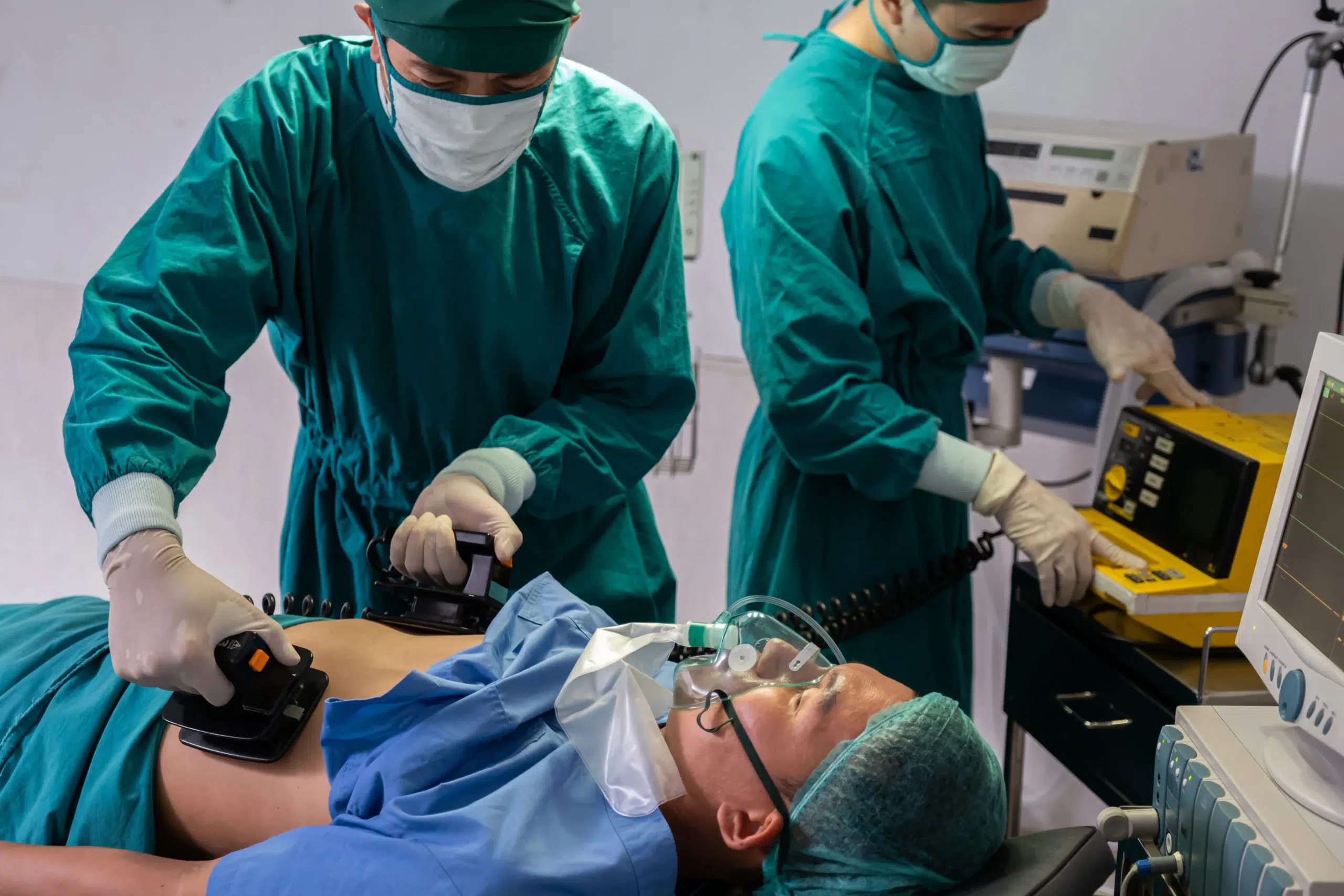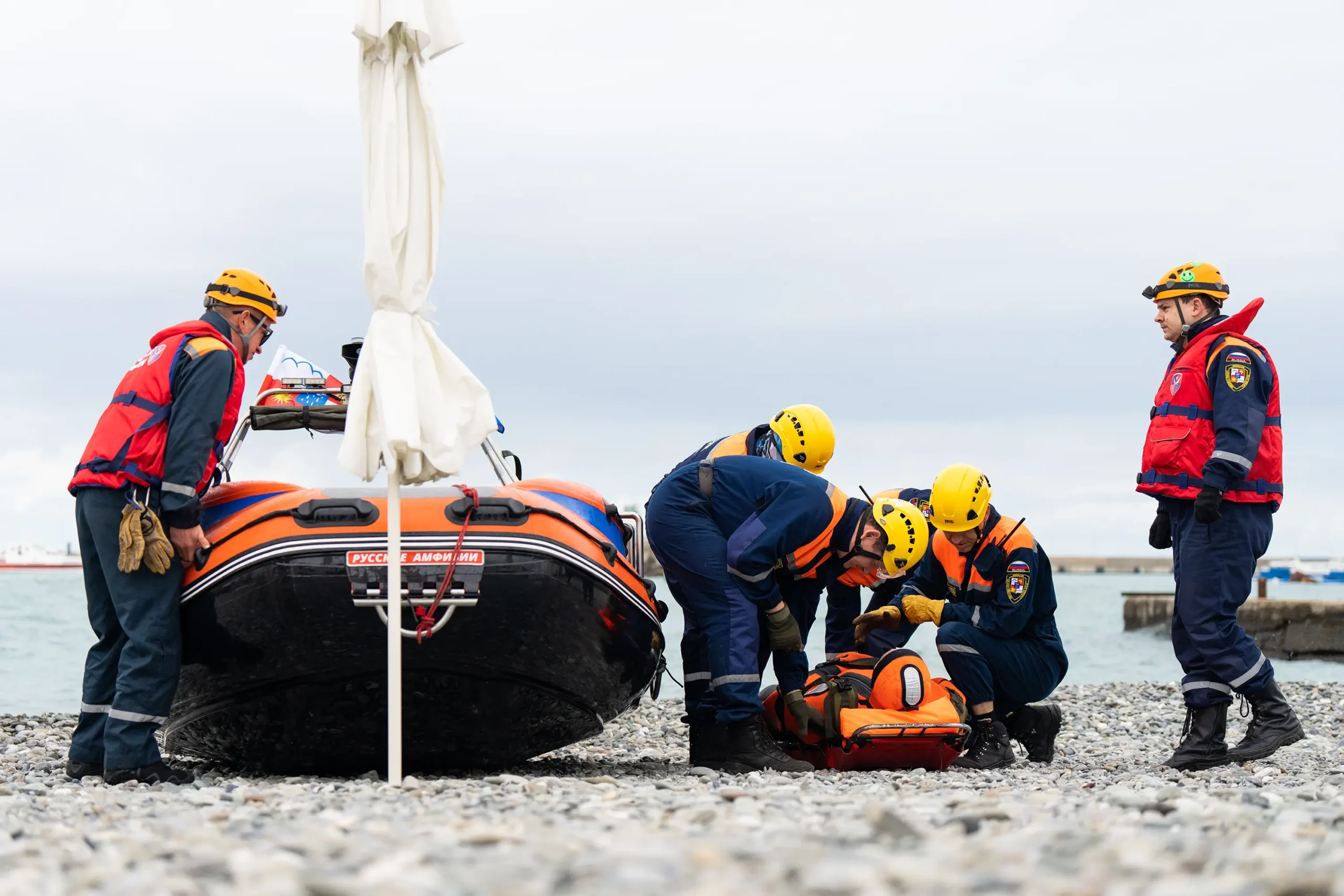Working in healthcare, you know how quickly CPR skills can fade. Regular practice is key, but who has time for lengthy recertification courses? RQI, or Resuscitation Quality Improvement, offers a game-changer for healthcare providers in San Mateo. This innovative program emphasizes short, frequent practice sessions and personalized feedback, making it easier to stay sharp and confident in your abilities. If you’re looking for a more efficient and effective way to maintain your CPR skills, keep reading to learn how RQI in San Mateo can transform your approach to resuscitation training. This article explores the benefits of RQI, how it differs from traditional CPR courses, and why it’s the preferred choice for many healthcare professionals in the area.
Key Takeaways
- RQI provides a flexible way to maintain your CPR skills: Short, frequent practice and online learning fit easily into busy schedules, ensuring you’re always prepared.
- Real-time feedback helps you perfect your technique: RQI uses innovative technology to analyze your performance, offering immediate guidance and boosting your confidence.
- Find an RQI provider that meets your needs: Consider factors like location, class size, and additional resources when choosing an AHA Training Center. The right provider will offer convenient scheduling and personalized support.
What is RQI? A New Approach to CPR in San Mateo
What is RQI and How Does It Differ from Traditional CPR?
RQI, or Resuscitation Quality Improvement, represents a significant shift in how healthcare providers maintain their CPR skills. Developed by the American Heart Association, RQI replaces the traditional two-year certification model with a more dynamic and flexible system. Instead of infrequent, large group sessions, RQI emphasizes short, quarterly practice sessions combined with online learning. This allows healthcare professionals to refresh their skills regularly and integrate training more easily into their busy schedules. This approach ensures skills are kept sharp and readily available when needed.
Why Continuous CPR Skill Development Matters
Studies show that CPR skills learned in traditional courses can deteriorate within just a few months. This decay can have serious consequences during real-life emergencies. RQI addresses this issue by promoting continuous skill development. Frequent practice and regular assessments help healthcare providers retain critical knowledge and muscle memory. This consistent reinforcement leads to improved confidence and proficiency in performing high-quality CPR. RQI Partners offers further insights into the science behind this approach. Ultimately, the goal is to ensure that healthcare professionals are always prepared to deliver effective CPR, potentially saving more lives.
Debunking RQI Myths
Despite its proven effectiveness, some misconceptions about RQI persist. Some believe it’s less comprehensive than traditional CPR training. However, RQI incorporates a variety of learning methods, including online modules, simulation exercises, and hands-on practice, ensuring a thorough understanding of CPR principles. Others worry about the time commitment. In reality, the flexible, distributed nature of RQI often makes it easier to fit into a busy schedule than traditional courses. Addressing these common misconceptions, some of which are discussed in this Laerdal Medical post, is key to understanding the true value and efficiency of RQI. It’s a modern, data-driven approach designed to improve CPR competency and patient outcomes.
Find RQI Courses in San Mateo
Looking for RQI certification in San Mateo? This section breaks down RQI programs, providers, and why Millbrae CPR Classes might be the right fit for your training.
Available RQI Programs
The American Heart Association RQI (Resuscitation Quality Improvement) program offers a modern and efficient path to BLS, ACLS, and PALS certification. This innovative approach focuses on continuous quality improvement, helping healthcare providers maintain their resuscitation skills through regular practice and assessment. It’s the preferred method for many medical professionals looking to stay current with the latest guidelines and best practices.
Top RQI Providers in San Mateo
Millbrae CPR Classes
Millbrae CPR Classes offers high-quality American Heart Association RQI courses, providing a convenient way for healthcare professionals in Millbrae and surrounding areas to obtain and maintain their BLS, ACLS, and PALS certifications. We pride ourselves on offering flexible class schedules and excellent customer service. Our location serves San Mateo, Daly City, and Millbrae.
Safety Training Seminars
Safety Training Seminars, a woman-owned AHA Training Center, also provides comprehensive RQI training in San Mateo. They offer various courses, including BLS, ACLS, and PALS. Their commitment to quality and convenient scheduling makes them another solid option for RQI certification.
American Heart Association Training Centers
The American Heart Association oversees the RQI program, setting the standards and guidelines for training centers across the country. This ensures a consistent and high-quality learning experience, regardless of where you complete your RQI certification.
Why Choose RQI Training at Millbrae CPR Classes?
At Millbrae CPR Classes, we understand the demands of a healthcare career. Our RQI program is designed for flexibility and effectiveness. Our blended learning approach combines online modules with hands-on skills sessions, allowing you to learn at your own pace and practice essential techniques. We also offer discounts for groups and a low price guarantee. We also offer specialized training, including the EMSA Child Care Health & Safety program.
Benefits of RQI
RQI offers a fresh perspective on CPR training, moving away from infrequent recertifications to a model of continuous improvement. This approach offers several key advantages for healthcare providers.
Build Confidence and Retain Skills
Traditional CPR training often leads to a decline in skills over time. RQI combats this with regular practice and assessments. Frequent low-dose sessions reinforce proper technique and build muscle memory, increasing confidence in your abilities. Studies show RQI users demonstrate improved CPR compression and ventilation skills and require fewer attempts to achieve high-quality CPR. This consistent practice translates to a higher level of preparedness during real-life emergencies. You’ll feel more confident knowing your skills are sharp and ready when needed.
Get Real-Time Feedback
One of RQI’s most valuable aspects is the real-time feedback. As you practice, the system analyzes your performance, offering immediate guidance on areas like compression depth and rate. This personalized feedback helps refine your technique and understand exactly where you excel and where you can improve. This immediate feedback loop is far more effective than waiting for feedback during a biannual recertification course. Eastern Health’s case study highlights how real-time feedback leads to significant improvements in BLS quality.
Learn in a Flexible Environment
RQI’s flexible learning model adapts to your schedule. Short, frequent practice sessions fit easily into busy workdays, eliminating the need to block out large chunks of time for traditional classroom training. The online learning component allows you to review key concepts at your own pace. This adaptable approach makes maintaining CPR skills manageable and sustainable, even with the demands of a hectic healthcare environment. For more information, review this helpful guide to RQI.
Improve Patient Outcomes
Ultimately, the goal of high-quality CPR is to improve patient outcomes. By emphasizing consistent practice and real-time feedback, RQI equips providers with the skills they need to deliver effective CPR in critical situations. The American Heart Association has published findings demonstrating RQI’s positive impact on resuscitation performance, reinforcing the link between quality CPR and improved patient survival.
Meet Certification Requirements Efficiently
RQI isn’t just about improving skills; it’s also a streamlined way to maintain your AHA certification. As a subscription-based program, RQI replaces the traditional recertification model with ongoing assessments and practice. This ensures your skills are always current and eliminates the stress of last-minute cramming for a high-stakes recertification exam. RQI program details clearly outline how the program fulfills AHA certification requirements.
Get Started with RQI
So, you’re ready to take the next step and learn more about the Resuscitation Quality Improvement (RQI) program? Great! This section covers everything you need to know to get started with RQI training in San Mateo.
RQI Pricing and Value
The American Heart Association RQI program is a popular, modern, and efficient way for medical and healthcare professionals in San Mateo to get their official American Heart Association BLS, ACLS, and PALS certifications. It’s designed to be cost-effective, focusing on short, frequent practice sessions rather than lengthy, traditional CPR courses. This approach helps you maintain your skills and reduces the overall time commitment, making it a valuable investment for busy professionals.
Discounts and Promotions
We offer AHA BLS, ACLS, PALS, CPR, and First-aid certification courses every day of the week in San Mateo and surrounding cities. Check with your employer to see if they offer group discounts for RQI training. You might also find discounts through providers like Millbrae CPR Classes. Be sure to ask about any current promotions or special offers.
Register for RQI and Learn the Prerequisites
RQI offers a flexible, skills-based approach to CPR training. Short, frequent practice sessions combined with online learning help maintain skills and confidence, fitting easily into busy schedules. Before you register for an RQI course, make sure you understand the prerequisites. These may vary depending on the specific program (BLS, ACLS, or PALS) you’re pursuing. Contact your chosen provider to confirm the requirements and complete any necessary steps before your first session.
Prepare for Your First RQI Session
The RQI Program uses cognitive learning modules, including educational videos, simulated patient cases, and multiple-choice exam questions. Familiarize yourself with the RQI program structure beforehand. This will help you feel more comfortable and prepared. Make sure you have access to a computer or tablet with a reliable internet connection for the online learning components. Come prepared to actively participate in the hands-on skills sessions and ask questions.
Master RQI Skills
RQI isn’t just a different way to learn CPR—it’s a new way to think about CPR. It’s designed to help healthcare providers maintain their skills through regular practice and feedback. Let’s explore how RQI helps you truly master high-quality CPR.
Continuous Skills Assessments
Unlike traditional CPR classes that require infrequent recertification, RQI uses short, frequent skills sessions. These sessions incorporate continuous assessments using realistic manikins that provide real-time feedback. This consistent practice helps solidify muscle memory and ensures you’re always ready to deliver effective compressions and ventilations. You’ll earn an RQI eCredential, verifying your CPR competency.
Cognitive Learning Modules
RQI goes beyond hands-on practice. The program includes cognitive learning modules with educational videos, simulated patient cases, and multiple-choice questions. These modules reinforce your understanding of the science behind CPR and help you make critical decisions in real-life emergencies.
Realistic Simulation Training
RQI training simulates real-world scenarios, allowing you to practice your skills in a safe and controlled environment. Real-time feedback helps you identify areas for improvement and refine your technique. This realistic simulation builds confidence and prepares you to respond effectively under pressure.
Team Performance and Communication
While individual skills are essential, effective CPR often requires teamwork. RQI emphasizes the importance of clear communication and coordinated efforts during resuscitation. Regular practice with your team helps build a shared mental model and improves your ability to work together seamlessly in critical situations. Frequent, short refresher courses are more effective for maintaining these crucial team skills than lengthy, infrequent training.
Adapt to RQI Technology
RQI leverages technology to make CPR training more accessible and convenient. The program is subscription-based, allowing you to access training materials and complete skills sessions on your schedule. This flexible approach fits seamlessly into busy schedules and ensures you can maintain your CPR competency without disrupting your workflow. Embracing this technology is key to maximizing the benefits of RQI.
Choose the Right RQI Program
Finding the right RQI program is crucial for healthcare professionals who need to maintain their CPR skills. With various options available in San Mateo, it’s important to understand what to look for in a quality provider.
Choosing an RQI Provider
The American Heart Association’s RQI program offers a modern and efficient way for medical professionals to stay up-to-date with their certifications. When selecting an RQI provider, consider factors like their AHA Training Center affiliation, the range of courses offered (BLS, ACLS, PALS), and the convenience of their class schedules and locations. Look for providers who prioritize personalized instruction and offer ongoing support. A good provider will also have a strong track record and positive reviews from other healthcare professionals. Check if they offer additional certifications, such as CPR and First Aid.
Compare RQI Options in San Mateo
RQI programs in San Mateo offer a flexible, skills-based approach to CPR training. This typically involves short, frequent practice sessions combined with online learning modules. This blended learning approach helps maintain skills and confidence, fitting easily into busy schedules. When comparing programs, consider the balance between online and in-person training, the frequency of skills practice, and the availability of real-time feedback. Some providers, like Millbrae CPR Classes, may offer additional resources or refresher courses to further support your learning. See if they have options for group discounts if you’re coordinating training for multiple people.
Make Informed Decisions About CPR Training
Choosing the right CPR training can be a big decision. Take the time to research different providers and compare their offerings. Look for providers who offer a variety of courses, including BLS, ACLS, PALS, CPR, and First Aid. Check if they provide training in convenient locations and at times that work for you. Consider programs like the EMSA Child Care Health & Safety course if it aligns with your professional needs. Don’t hesitate to contact providers directly to ask questions and get a better sense of their teaching style and support systems.
Ongoing Support at Millbrae CPR Classes
Millbrae CPR Classes understands the importance of ongoing support for healthcare professionals. Their RQI program provides real-time feedback on your BLS skills, leading to continuous improvement and increased confidence. This commitment to ongoing support helps ensure that professionals maintain their skills and can provide high-quality care to their patients. This focus on skill improvement ultimately contributes to better patient outcomes. They also offer a low price guarantee, ensuring you receive high-quality training at a competitive price.
Related Articles
- RQI Classes in Millbrae, CA – Millbrae CPR Classes
- Why CPR is Crucial in Healthcare
- The Science Behind Effective CPR: A Comprehensive Guide
- Debunking Common CPR Myths for Life-Saving Success
- PALS HeartCode San Mateo: A Certification Guide
Frequently Asked Questions
How does RQI differ from traditional CPR training?
RQI focuses on short, frequent practice sessions and online learning, rather than the traditional two-year certification model. This allows for more consistent skill maintenance and greater flexibility in scheduling. It’s designed to fit the busy schedules of healthcare professionals.
Why is RQI better than traditional CPR training?
RQI’s emphasis on continuous practice helps prevent skill decay, a common issue with traditional CPR courses. The regular reinforcement of skills leads to improved confidence and proficiency, ultimately leading to better patient outcomes. The flexible format also makes it easier to integrate training into a busy work life.
Is RQI accepted for healthcare certification requirements?
Yes, RQI is developed by the American Heart Association and fully meets their certification requirements for BLS, ACLS, and PALS. It’s a modern approach to maintaining your credentials and ensuring your skills are always current.
How much does RQI training cost, and are there any discounts available?
RQI pricing varies depending on the provider and the specific courses you need (BLS, ACLS, PALS). Many providers offer discounts for groups, so it’s worth checking with your employer or colleagues. Some training centers also run occasional promotions, so it’s always a good idea to ask.
What are the prerequisites for RQI training, and how do I get started?
Prerequisites for RQI depend on the level of certification you’re pursuing (BLS, ACLS, or PALS). Contact your chosen training provider to confirm the specific requirements. Getting started is usually straightforward – you can often register online and begin the online learning modules at your convenience. Then, you’ll schedule your hands-on skills sessions.
